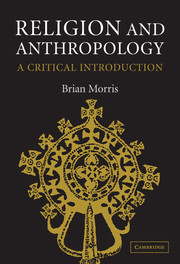Book contents
- Frontmatter
- Contents
- Preface
- Introduction
- 1 Shamanism
- 2 Buddhism and Spirit-Cults
- 3 Islam and Popular Religion
- 4 Hinduism and New Religious Movements
- 5 Christianity and Religion in Africa
- 6 African-American Religions
- 7 Religions in Melanesia
- 8 Neopaganism and the New Age Movement
- Conclusions
- References
- Index
2 - Buddhism and Spirit-Cults
Published online by Cambridge University Press: 29 March 2011
- Frontmatter
- Contents
- Preface
- Introduction
- 1 Shamanism
- 2 Buddhism and Spirit-Cults
- 3 Islam and Popular Religion
- 4 Hinduism and New Religious Movements
- 5 Christianity and Religion in Africa
- 6 African-American Religions
- 7 Religions in Melanesia
- 8 Neopaganism and the New Age Movement
- Conclusions
- References
- Index
Summary
PROLOGUE
“Buddhism is a very ancient religion: it has behind it two thousand five hundred years of history” – so wrote the founder of the Western Buddhist Order, Sangharakshita (1990, 26). Yet contemporary scholars continually tell us, usually those of postmodernist persuasion, that Buddhism as a religion is purely a western invention; or that it does not exist as a ‘single entity’. It is not a monolithic institution, Damien Keown writes, ‘which was everywhere the same’ (1996, 2). We should therefore speak of Buddhisms (plural) only as if this statement does not imply the existence of something called ‘Buddhism’, which is then the subject of a book! And one may well ask this question: What scholar or anthropologist has ever failed to recognize the diverse manifestations of Buddhism as it has adapted to local cultural and social conditions in its spread across Asia? People, of course, in many parts of Asia have always recognized themselves as Buddhists (long before European scholars arrived on the scene), usually expressed in terms of following the dharma, the teachings of the Buddha.
In essence, Buddhism is a way of salvation: It is not concerned with god or the world, but with human life, or rather with sentient beings, and with the elimination of suffering. The attainment of salvation depends neither on ritual sacraments, nor faith, nor on divine grace, but only on a deep understanding of the way ‘things really are’ (Gombrich 1984, 9–11).
- Type
- Chapter
- Information
- Religion and AnthropologyA Critical Introduction, pp. 44 - 76Publisher: Cambridge University PressPrint publication year: 2005



